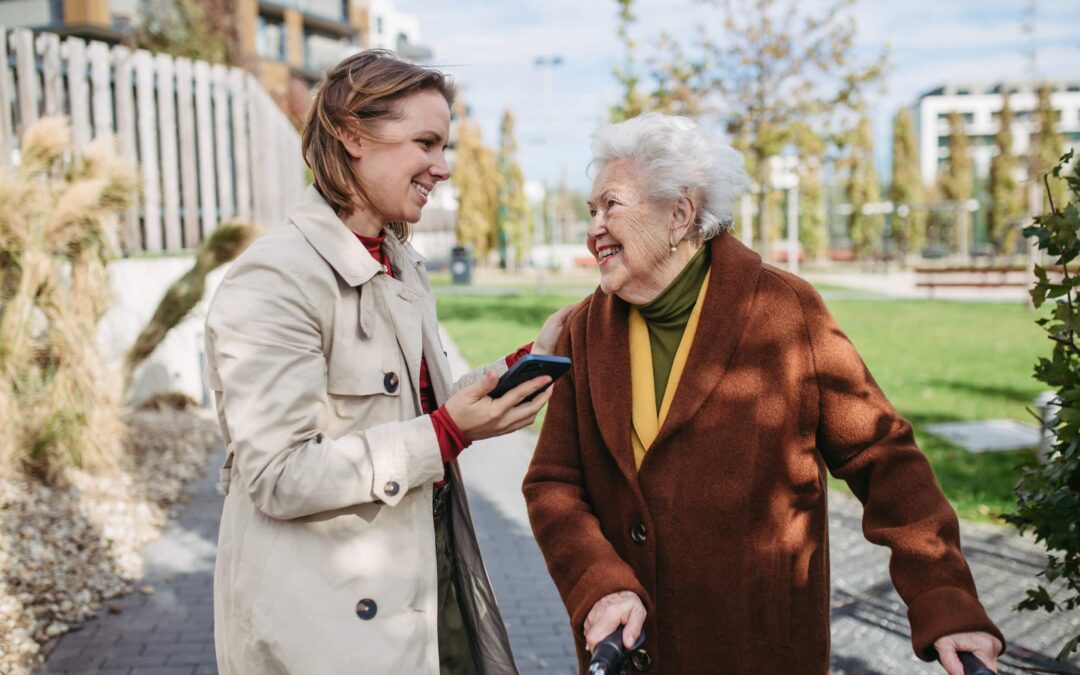Imagine helping seniors maintain their independence with dignity and respect. Personal care services address daily living needs, allowing seniors to thrive comfortably in their own homes. By providing support with hygiene, meal prep, and mobility, these services enhance both physical health and emotional well-being. They also foster social engagement, reducing feelings of isolation. But how does personal care truly empower seniors to live life on their terms? There’s so much more to uncover.
Understanding the Role of Personal Care for Seniors
When it comes to ensuring the well-being of seniors, understanding the role of personal care can’t be overstated. You’ll find that personal care benefits are pivotal in maintaining senior independence. By focusing on individual needs, personal care empowers seniors to continue living life on their own terms. It addresses essential aspects of daily living while respecting their dignity and preferences.
You’ll notice that personalized care plans help mitigate challenges brought by aging, enhancing quality of life and confidence. Seniors feel more in control, fostering a sense of self-reliance. You’ll see how personal care supports emotional and physical health, reducing risks of isolation and dependency. By prioritizing their autonomy, you’re not just aiding their daily tasks but also contributing greatly to their overall happiness and independence.
Key Personal Care Services for Daily Living
Although aging presents unique challenges, key personal care services for daily living are essential in helping seniors maintain their dignity and independence. You might find that tasks like personal hygiene can become more difficult with age. Regular assistance with bathing, grooming, and dressing guarantees you feel fresh and confident every day. Personal hygiene isn’t just about feeling clean; it’s about your overall health and well-being.
Meal preparation is another critical area. Guaranteeing nutritious meals are prepared daily supports your health, providing the energy and nutrients needed to thrive. You may no longer have the stamina or ability to cook for yourself, but with help, you can still enjoy delicious, well-balanced meals. These services empower you to live comfortably and independently in your own home.
Enhancing Mobility and Physical Health for Seniors

Enhancing mobility and physical health for seniors starts with understanding the importance of fall prevention and building strength and flexibility. You can create a safer environment by removing tripping hazards and ensuring good lighting in your living spaces. Incorporating exercises that focus on balance and muscle strengthening will not only boost your confidence but also help maintain independence.
Fall Prevention Strategies
Even as you age, maintaining mobility and physical health is essential for reducing the risk of falls. You can start with balance training exercises, which are effective in improving stability and confidence. Simple routines like standing on one leg or gentle tai chi can make a significant difference. It’s also important to take into account home modifications to create a safer living environment. Remove tripping hazards like loose rugs, guarantee adequate lighting, and install grab bars in key areas such as the bathroom.
Consulting a healthcare professional can provide personalized advice suited to your needs. Remember, preventing falls isn’t just about safety; it’s about preserving your independence and quality of life. Taking proactive steps today can keep you moving confidently tomorrow.
Strength and Flexibility
To maintain your independence as you age, building strength and flexibility is essential. Engaging in regular strength training and flexibility exercises can greatly enhance your mobility and physical health. This approach helps you perform daily tasks with ease and reduces the risk of falls. By incorporating these activities into your routine, you’ll notice improvements in balance, coordination, and overall well-being. Here’s how you can get started:
- Join a local gym: Access equipment and classes customized for seniors.
- Practice yoga or tai chi: These activities improve flexibility and balance.
- Use resistance bands: They’re great for strength training at home.
- Walk regularly: It’s a simple way to boost strength and stamina.
- Consult a physical therapist: They can design personalized exercises for you.
Stay proactive in your health journey!
The Impact of Personal Care on Mental Well-being
When it comes to personal care, its impact on mental well-being can be profound yet often overlooked. As you age, maintaining mental health becomes essential for your independence. Personal care offers more than physical assistance; it provides emotional support and cognitive engagement that can uplift your spirits and sharpen your mind. Activities like conversations, puzzles, or shared hobbies stimulate your brain, keeping it active and engaged. Emotional support from caregivers fosters a sense of belonging and security, reducing feelings of loneliness and anxiety. These interactions help sustain mental agility and emotional resilience, which are critical for maneuvering daily challenges. Embrace personal care as a holistic approach to not just your physical, but also your mental and emotional well-being.
Customizing Personal Care to Meet Unique Needs
Understanding that personal care must be adapted to fit individual needs is essential for enhancing the quality of life for seniors. You want your loved ones to enjoy their independence, and personalized assessments can help determine what specific care they need. Individualized plans guarantee seniors receive support customized to their lifestyle and preferences, fostering their independence and well-being.
Consider these factors for a personalized care plan:
- Health Conditions: Addressing chronic illnesses and mobility issues.
- Daily Routines: Maintaining familiar activities and habits.
- Emotional Needs: Providing companionship and support.
- Cultural Preferences: Respecting traditions and dietary restrictions.
- Safety Concerns: Ensuring a secure living environment.
Building Trust and Comfort With Caregivers

Building trust and comfort with caregivers is essential for ensuring seniors feel safe and valued in their care environment. When you focus on building rapport, you create a foundation where seniors feel understood and respected. This starts with fostering communication, actively listening to their concerns and needs, and responding with empathy.
You can strengthen this bond by being consistent and reliable in your actions, showing that you’re not just there to perform tasks but to genuinely care. Encourage open dialogue, making it clear that their opinions matter. By doing so, you empower them and enhance their sense of independence. Remember, a trusting relationship improves their quality of life, providing peace of mind and emotional well-being for both you and the senior in your care.
Leveraging Technology in Personal Care
You can enhance your loved one’s personal care by integrating technology like smart home devices, which simplify daily tasks and increase safety. Telehealth services have expanded, making it easier for seniors to access medical care without leaving home, while wearable health monitors provide real-time insights into their well-being. By embracing these innovations, you’re not only supporting their independence but also staying connected to their health needs.
Smart Home Devices
While embracing technology may seem challenging, smart home devices offer a promising solution for enhancing personal care for seniors. Imagine a home where lights adjust automatically, and reminders guarantee medications are taken on time. Automated assistance in a smart home can make daily tasks manageable, allowing seniors to maintain independence. You might worry about complexity, but these systems are designed to be user-friendly and intuitive.
Consider the benefits of smart home devices:
- Voice-activated reminders for medications.
- Motion-sensing lighting to prevent falls.
- Smart thermostats for ideal comfort.
- Automated security systems for peace of mind.
- Interactive assistants to answer questions and provide companionship.
Telehealth Services Expansion
Smart home devices have opened new doors for enhancing personal care, and expanding telehealth services takes this innovation further. By embracing telehealth, you can access a range of healthcare services without leaving home. This convenience means more frequent check-ins, timely interventions, and better management of chronic conditions. Virtual consultations allow you to speak with healthcare professionals easily, enhancing your independence and confidence in managing your health. The telehealth benefits are clear: reduced travel stress, quicker access to specialists, and a stronger connection with medical support. As telehealth services grow, they empower you to stay proactive about your well-being, ensuring you remain in control of your lifestyle, all while enjoying the comfort and safety of your home.
Wearable Health Monitors
When it comes to personal care, wearable health monitors have revolutionized how seniors manage their well-being. These wearable devices offer real-time health tracking, empowering you to keep an eye on essential signs and activity levels. They provide a sense of security, knowing you’re just a glance away from important health data. Here’s how these advanced tools can support your independence:
- Continuous Monitoring: Track heart rate, sleep patterns, and activity levels effortlessly.
- Immediate Alerts: Receive notifications for irregular heart activity or falls.
- Health Insights: Gain personalized suggestions to improve wellness.
- Medication Reminders: Never miss a dose with timely alerts.
- Emergency Assistance: Quickly connect to help in urgent situations.
Financial Considerations and Support Options for Personal Care

Maneuvering the financial landscape of personal care for seniors can be challenging, but understanding your options is vital for making informed decisions. Start by exploring financial assistance through insurance options, such as long-term care policies. These can help cover costs and provide peace of mind. Don’t overlook community resources, local organizations often provide services or subsidies to ease financial burdens. Effective budgeting strategies can help manage expenses and stretch your funds further. Finally, consider estate planning to guarantee your assets support your care needs without unnecessary stress. With the right knowledge, you can secure personal care solutions that maintain your independence while safeguarding your financial well-being.
Frequently Asked Questions
How Can Personal Care Help Seniors Maintain Social Connections?
You can foster social engagement by involving seniors in companionship activities. Encourage them to join clubs or group exercises. Personal care aids in maintaining their well-being, allowing them to actively participate and form meaningful connections with others.
What Are Common Misconceptions About Personal Care for Seniors?
You might think personal care limits independence, but that’s a misunderstanding. Stereotypes about caregiving often paint it as controlling, yet it’s designed to empower. By supporting daily needs, it actually enhances your freedom and autonomy.
How Do Cultural Differences Affect Personal Care for Seniors?
Cultural beliefs greatly shape caregiving practices. You might find that what’s respectful in one culture may differ in another. Understanding these differences guarantees you provide personal care that respects your loved one’s traditions and preferences, fostering comfort.
What Role Does Family Play in a Senior’s Personal Care Plan?
Your family’s involvement is vital in a senior’s personal care plan. You provide emotional support and practical help. As caregivers, you guarantee they receive consistent care, enhancing their quality of life and fostering independence.
How Can Seniors Express Their Personal Care Preferences Effectively?
You can express personal care preferences by prioritizing personal autonomy and using clear communication strategies. Discuss your needs openly, listen actively, and assertively voice your desires to guarantee your care aligns with your lifestyle and values.
Conclusion
By embracing personal care, you’re empowering seniors to maintain their independence and dignity as they age. With customized plans addressing daily needs, mobility support, and mental well-being, seniors can thrive in their own homes. Building trust with caregivers and leveraging technology guarantees a personalized approach that respects individual preferences. Financial options are available to ease the burden, making personal care accessible. You’re not just enhancing their quality of life; you’re helping them live life on their own terms.
Healing Hearts Medical Home Care can help by providing compassionate and professional personal care services tailored to the unique needs of each senior, ensuring they receive the support necessary to live comfortably and independently at home.

